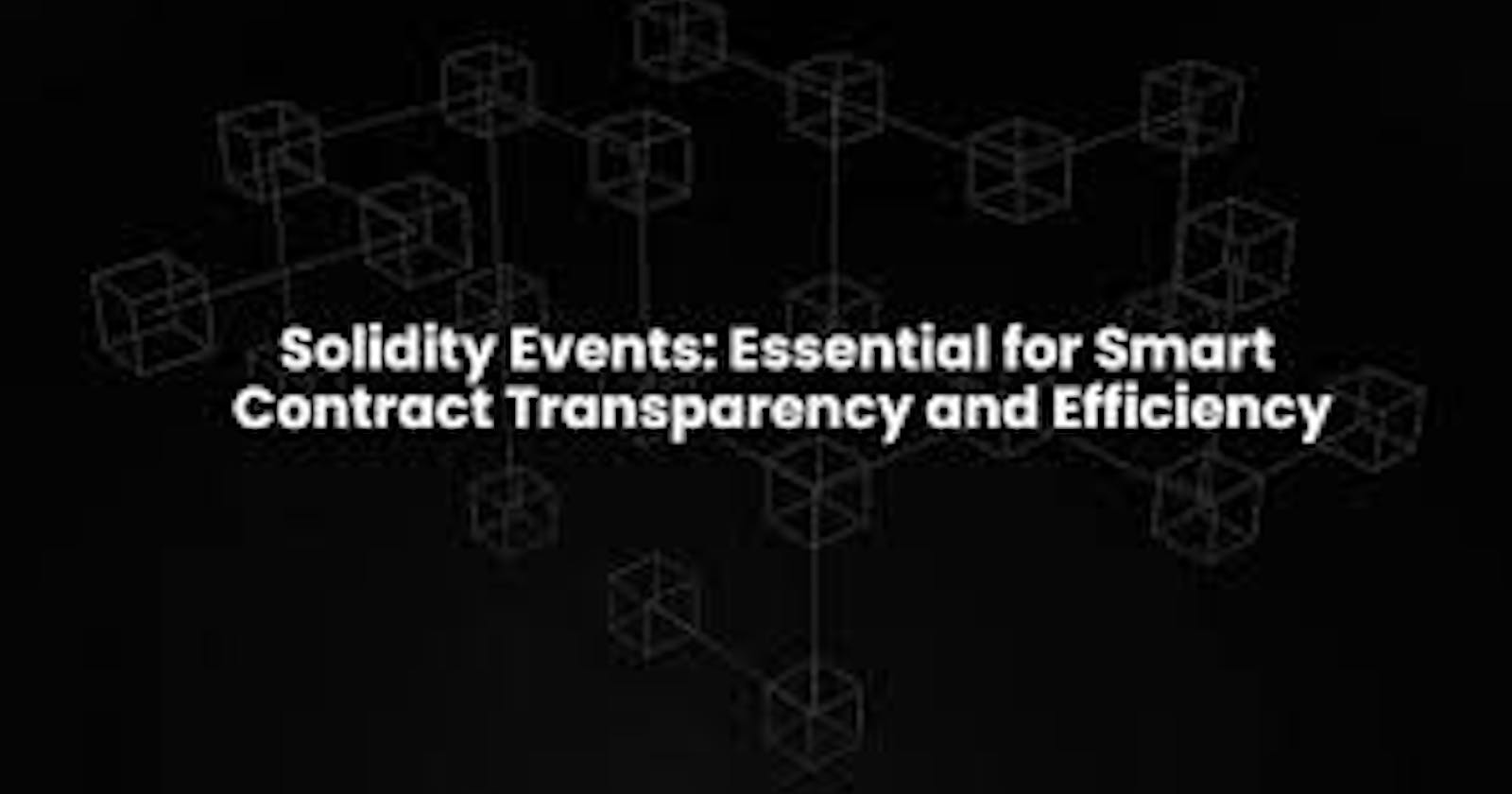Demystifying Solidity Events and Events Logging: Bringing Your Smart Contracts to Life
Hold on tight, because we're going to unravel one of Solidity's coolest features - events. These aren't just lines of code; they're the heartbeat of your contract, allowing it to talk to the outside world, sharing secrets and creating transparency. We're going to dive deep into Solidity events, strip away the jargon, and throw in some real-world code examples to make this more exciting.
Solidity Events Unleashed
Think of Solidity events as those flags on the side of a highway that tell you something important just happened. They're like beacons that shine light on significant moments within your smart contract. Their job? Bridging the gap between your contract and the big, wide world outside, including apps, websites, and even other smart contracts. These events also act as the permanent record-keepers of your contract's activities on the Ethereum blockchain.
Let's Get Started - Event Declaration
In the Solidity realm, you declare an event using the 'event' keyword. Check out this simple recipe:
pragma solidity ^0.8.0;
contract ExampleContract {
event LogEvent(address indexed user, string message);
// ...
}
Here, we've christened our event as 'LogEvent'. It's like a custom stamp for logging two things: an Ethereum address and a message. The 'indexed' keyword? Think of it as an organizational wizard, making it easier to find specific event entries later on.
Why even bother with events?
Transparency : Events smash the glass wall of your smart contract. Anyone can peek inside and see what's happening, ensuring transparency and trust.
Empowering dApps: Events are the secret sauce that makes dApps interactive. They listen for specific contract events and respond in real-time, turning your app into a dynamic experience.
Ethereum's Memory: These events are Ethereum's memory bank. They store crucial data on the blockchain, so it's forever etched in history.
Integrating Externally: External apps love events. They can listen in, like eavesdroppers at a juicy party, and react accordingly. This makes it a breeze to create interconnected systems.
Introduction to Solidity Events Logging
Now, here comes the fun part! Once you've declared an event, you can log events within your smart contract functions. It's like writing in your journal. To do this, you just need the 'emit' keyword. As below:
pragma solidity ^0.8.0;
contract ExampleContract {
event LogEvent(address indexed user, string message);
function doSomething(string memory message) public {
// Here's where the action happens...
// And now, let's log the event
emit LogEvent(msg.sender, message);
}
}
In this snippet, the 'doSomething' function does its thing, and then it records a 'LogEvent' complete with the sender's address and a message. Think of it as your contract sending out a postcard to the blockchain.
Eavesdrop on These Events - Listening In
External applications can be like your nosy neighbor, always listening to what's going on. They can tune into these events your smart contract emits, and this is how you achieve real-time updates and integration with the blockchain. You can use tools like web3.js to do this. Here's a what the code should look like:
const Web3 = require('web3');
const web3 = new Web3('https://mainnet.infura.io/v3/YOUR_INFURA_PROJECT_ID');
const contractAddress = '0xYourContractAddress';
const contractAbi = [...]; // Your contract's ABI goes here
const contract = new web3.eth.Contract(contractAbi, contractAddress);
contract.events.LogEvent()
.on('data', (event) => {
console.log('LogEvent:', event.returnValues);
})
.on('error', (error) => {
console.error('Error:', error);
});
This script creates a connection to an Ethereum node, listens for the 'LogEvent' from your contract, and when the event comes to life, it shouts it out to your console.
Wrapping it Up - Solidity Events Unleashed
So, there you have it - Solidity events aren't just lines of code; they're the storytellers of your smart contracts. They bring transparency, store data, and open doors to external apps. By mastering events, you can craft robust, interactive, and trustworthy blockchain applications.
In this journey, we've torn apart event declaration, walked through logging events, and even peeked into how external apps can listen in on these blockchain whispers. This is where your Ethereum journey gets exciting - now go forth and build amazing things with Solidity events!
